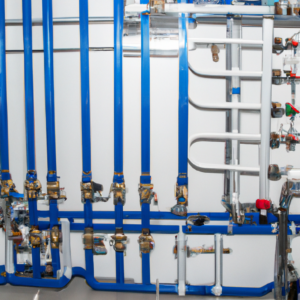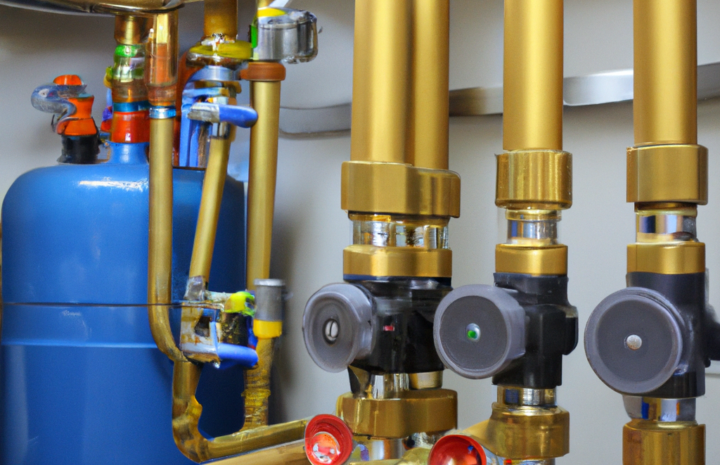In our modern lives, the convenience of readily available hot water has become a necessity rather than a luxury. As the options for hot water systems continue to expand, it’s essential to explore the benefits and considerations of each type. In this article, we will delve into the world of gas hot water systems, uncovering their advantages, types, installation processes, and more. Let’s embark on a journey to understand why gas hot water systems might be the right choice for you.

Understanding Gas Hot Water Systems
Gas hot water systems harness the power of natural gas to provide a consistent and efficient supply of hot water. These systems work by heating water using a gas burner, which transfers heat to the water through a heat exchanger. The resulting hot water is then stored in a tank or delivered directly to the faucet, depending on the system type.
One of the key advantages of gas hot water systems is their energy efficiency. Gas is a cost-effective fuel source that heats water quickly, reducing the time it takes for you to enjoy a warm shower or use hot water for other purposes. Additionally, gas hot water systems are known for their lower operational costs compared to electric systems.
Types of Gas Hot Water Systems
Gas hot water systems come in various types to accommodate different preferences and needs. The most common types include:
- Storage Tank Gas Hot Water Systems: These systems store hot water in a tank, ensuring a constant supply. They are suitable for households with consistent hot water demands.
- Tankless (On-Demand) Gas Hot Water Systems: Tankless systems heat water on-demand, eliminating the need for a storage tank. They are compact, energy-efficient, and provide endless hot water.
- Heat Pump Gas Hot Water Systems: These systems utilize heat from the surrounding air to warm the water. They are highly energy-efficient and are ideal for eco-conscious homeowners.
Advantages of Gas Hot Water Systems
Gas hot water systems offer several advantages that make them a popular choice among homeowners. The quick heating process ensures you have hot water available whenever you need it. Unlike electric systems, which may take longer to heat water, gas systems provide instant gratification.
Moreover, gas hot water systems are known for their energy efficiency, resulting in lower utility bills over time. Gas is more affordable than electricity, and its efficient combustion process translates into cost savings for homeowners.
In addition to financial benefits, gas hot water systems are environmentally friendly. Natural gas produces fewer carbon emissions compared to electricity generated from fossil fuels, contributing to a reduced carbon footprint.
Factors to Consider When Choosing a Gas Hot Water System
Before making a decision, consider factors such as the size of your family, daily water usage, available installation space, initial costs, and long-term savings. A larger family with higher water demands might benefit from a storage tank system, while a smaller household could opt for a tankless system to save space.
It’s important to assess both the initial investment and potential savings over time. Although gas hot water systems might have a higher upfront cost, their energy efficiency can lead to significant savings on your monthly utility bills.
Installation and Maintenance
Professional installation is crucial to ensure the safe and efficient operation of your gas hot water system. Hiring a licensed technician will guarantee proper ventilation, gas line connections, and compliance with safety codes.
To maintain the system’s performance, follow recommended maintenance guidelines. Regularly flushing the tank, checking for leaks, and inspecting the gas burner will help prevent issues and extend the system’s lifespan.
Comparing Gas and Electric Hot Water Systems
When comparing gas and electric hot water systems, it’s important to weigh various factors. Gas systems tend to heat water faster and have lower operational costs, making them a popular choice for many homeowners. Electric systems, on the other hand, are generally easier to install and have lower upfront costs.
Consider your household’s water usage patterns, budget, and energy efficiency goals when making your decision.
Choosing the Right Gas Hot Water System for You
Selecting the right gas hot water system requires careful consideration of your unique needs and preferences. Consult with experts in the field, read customer reviews, and explore the features of different system types.
By evaluating factors such as your family size, water usage habits, and available installation space, you can make an informed decision that aligns with your lifestyle.
Safety Considerations
Prioritize safety when installing and using a gas hot water system. Ensure proper ventilation to prevent gas buildup and invest in carbon monoxide detectors to keep your household safe from potential hazards. Regular inspections by professionals will help identify and address safety concerns.
Conclusion
In the realm of hot water systems, gas hot water systems stand out as efficient, cost-effective, and environmentally friendly options. With their quick heating capabilities, energy efficiency, and variety of types to choose from, these systems offer a compelling solution for households seeking reliable access to hot water. By considering your family’s needs, installation space, and safety precautions, you can confidently navigate the options and choose the gas hot water system that best suits your lifestyle.

